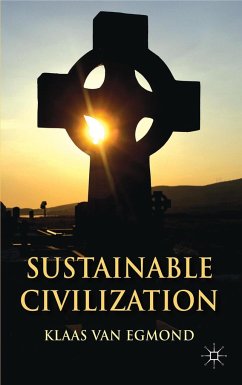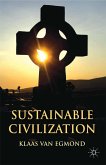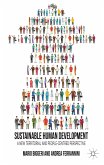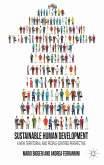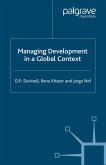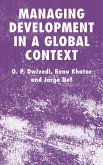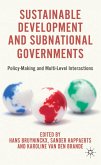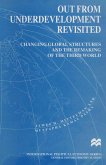In order to be sustainable, a civilization must maintain the balance between 'mind' and 'matter' and between the egocentric 'I' and 'the others'. This book investigates how new institutional arrangements in politics, economy and finance can resolve the current crisis of social values by restoring this delicate balance between opposing forces.
'The current disastrous impasse in global society has resulted from pursuing policies justified by a worldview that is no longer relevant social progress through economic growth, both without limit. If we continue to use that worldview to design policy responses to the crisis of humanity, it will only get worse. Sustainable Civilization offers an alternative. It lays out a novel and useful framework for describing paradigms. It discusses the options that are realistically available to us and offers guidelines for more effective policies.' Dennis Meadows, author of Limits to Growth (1972)
'The human mind seems to allow the quick embracing of deeply ingrained belief systems, and then extremes of denial in defence of them. This is why, like earlier civilizations, we tend to a suicidal blindness when facing enormous risks. This book is about these patterns of behaviour, the values that underpin them and how they need to change urgently. I recommend it and urge all to action on the consequences of it.' Jeremy Leggett, Environmental Change Institute, Oxford University, UK
'Klaas van Egmond is an unconventional and engaging thinker In his new book, he addresses questions about how to develop a more sustainable world in new ways, reviews the values that underpin individual and organizational behaviour and redefines human dignity in the process. Sustainable Civilization explores the internal dimension of sustainability and connects it with its external developments. He shows how climate change, the social crisis and the financial crisis are interconnected. This book is a must read for social entrepreneurs, bankers, scientists, politicians and citizens looking for a better understanding of what is happening around us and how to pursue a more sustainable future.' Peter Blom, CEO Triodos Bank
'Professor van Egmond's book is an important contribution to the understanding we need to find our way toward a more balanced and sustainable civilization. His emphasis on the crucial role of integral worldviews is a welcome addition to the current literature where "hard" factors such as energy, resources and finance take the centre stage. If we are to create a better world, that creation must start in our thinking in our worldview. And reading van Egmond's book helps this essential process get under way.' Ervin Laszlo, founder of the Club of Budapest
'The human mind seems to allow the quick embracing of deeply ingrained belief systems, and then extremes of denial in defence of them. This is why, like earlier civilizations, we tend to a suicidal blindness when facing enormous risks. This book is about these patterns of behaviour, the values that underpin them and how they need to change urgently. I recommend it and urge all to action on the consequences of it.' Jeremy Leggett, Environmental Change Institute, Oxford University, UK
'Klaas van Egmond is an unconventional and engaging thinker In his new book, he addresses questions about how to develop a more sustainable world in new ways, reviews the values that underpin individual and organizational behaviour and redefines human dignity in the process. Sustainable Civilization explores the internal dimension of sustainability and connects it with its external developments. He shows how climate change, the social crisis and the financial crisis are interconnected. This book is a must read for social entrepreneurs, bankers, scientists, politicians and citizens looking for a better understanding of what is happening around us and how to pursue a more sustainable future.' Peter Blom, CEO Triodos Bank
'Professor van Egmond's book is an important contribution to the understanding we need to find our way toward a more balanced and sustainable civilization. His emphasis on the crucial role of integral worldviews is a welcome addition to the current literature where "hard" factors such as energy, resources and finance take the centre stage. If we are to create a better world, that creation must start in our thinking in our worldview. And reading van Egmond's book helps this essential process get under way.' Ervin Laszlo, founder of the Club of Budapest

